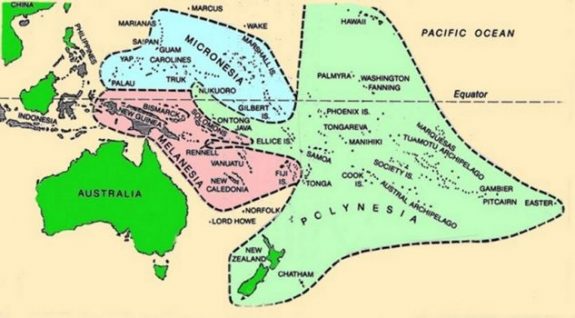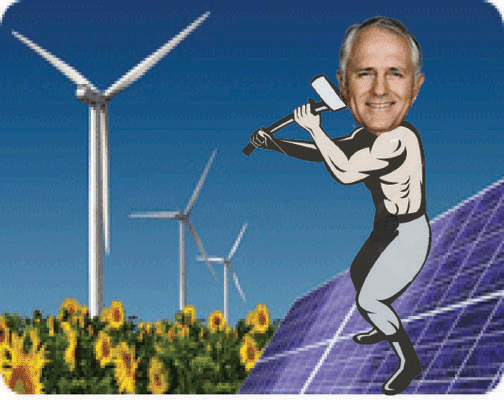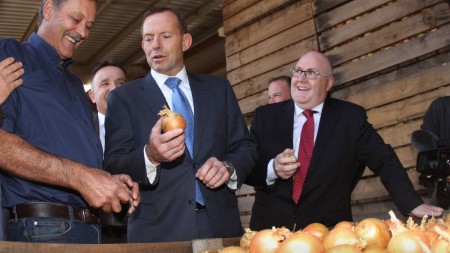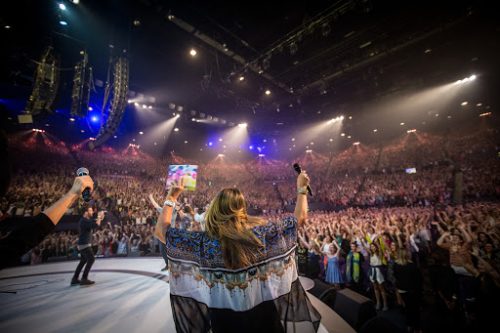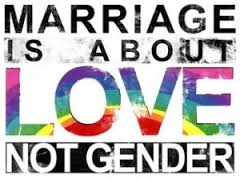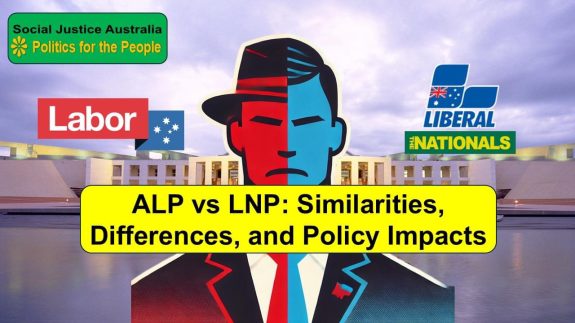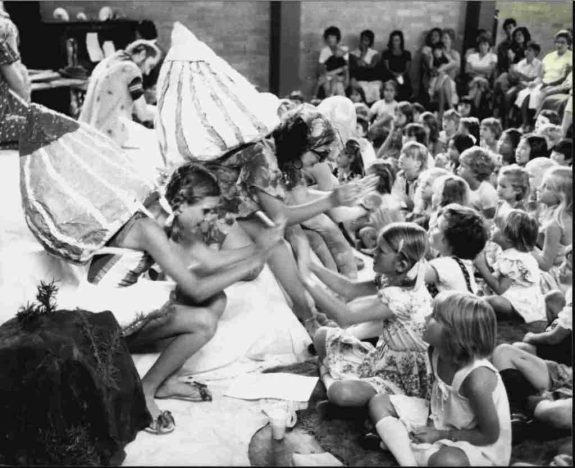By Denis Hay
Title
ALP vs LNP: Similarities, Differences, and Policy Impacts on Australians
Description
A deep dive into ALP vs LNP policies, exposing their shared goals and differences. Learn how each affects Australia’s future.
ALP vs LNP: Understanding Australia’s Major Political Parties
Australia’s political landscape often feels dominated by the Australian Labor Party (ALP) and the Liberal National Party (LNP). While these parties present themselves as distinct forces with opposing ideologies, a closer look reveals surprising similarities. This guide provides insight into where these parties align, where they diverge, and how their policies affect the average Australian.
Introduction
The belief of ALP and LNP as ideological opposites misleads many voters. Although each party markets distinct agendas, they often converge on policies supporting corporate interests, economic conservatism, and limited social investments, potentially sidelining the needs of everyday Australians.
This convergence fuels a lack of choice for voters and a growing disillusionment. As trust in these mainstream parties’ declines, understanding their similarities, differences, and policy impacts is essential for voters seeking transparency and accountability.
This article delves into the policy alignments and distinctions between ALP and LNP, exposing areas where rhetoric diverges from action. By clarifying these points, we aim to empower Australians with knowledge for more informed voting decisions, especially considering Australia’s monetary sovereignty.
1. Background and Historical Context
The Australian Labor Party (ALP) was founded in the 1890s as a workers’ party advocating for labor rights and social equality. Conversely, the Liberal Party, set up in 1944 and later allied with the National Party to form the LNP coalition, aimed to promote free-market policies and individual enterprise.
Over time, however, both parties have evolved, particularly in their approach to economic policy, leaning toward neoliberalism, which advocates minimal state intervention in markets.
2. Policy Areas of Agreement Between ALP and LNP
While differences exist, ALP and LNP exhibit alignment across multiple policy areas, notably defence, economic policy, immigration, environment, and public spending.
Defence and National Security
Shared Stance: Both parties are staunch supporters of defence spending, committing to initiatives such as the AUKUS alliance. Despite voter concerns, they endorse Australia’s strong ties with the United States, which influences defence priorities and foreign policy.
Impact: This alignment has led to increased military expenditures, diverting resources from domestic welfare. Critics argue this focus may prioritize global power interests over local needs.
Economic Policy and Corporate Interests
Similar Policies: Both parties support neoliberal policies, including corporate tax breaks, privatization, and deregulation. Large corporations, particularly in mining and finance, benefit significantly from this economic stance.
Impact: Neoliberal policies have widened income inequality, reduced job security, and amplified corporate influence. Many Australians face economic strain as a result, with rising costs of living and fewer safeguards against unemployment.
Immigration and Border Protection
Convergence: ALP and LNP both endorse strict immigration policies and offshore processing of asylum seekers. While these policies are publicly framed as necessary security measures, they face criticism for their humanitarian impact.
Controversy: Many Australians are uncomfortable with the harsh conditions in offshore facilities, but both parties have continued these policies, highlighting limited political will for change.
Environmental and Climate Policies
Surface-Level Commitment: Both parties acknowledge climate change, pledging support for emissions targets and renewable energy. However, both also heavily support Australia’s fossil fuel industry, proving reluctance to impose strict environmental regulations.
Actual Implementation: This commitment to fossil fuels undermines climate action. While both parties promote clean energy investments, their policies often do not address major polluters comprehensively.
Public Spending and Privatization
Common Ground: ALP and LNP are aligned on privatization, particularly within healthcare, education, and infrastructure sectors. Public-private partnerships (PPPs) are common in both parties’ infrastructure policies.
Impact on Public Services: Privatization affects the quality and accessibility of essential services, as cost and profit motivations can overshadow public interest. Citizens, particularly in low-income communities, withstand the worst of limited resources and increased costs in privatized systems.
3. Policy Areas of Difference
Despite these areas of alignment, ALP and LNP diverge on several critical issues, especially about social welfare, workers’ rights, and climate policy.
Social and Welfare Programs
ALP Stance: Advocates for increased social welfare spending, including healthcare and education funding, albeit inconsistently.
LNP Approach: Emphasizes reducing welfare dependency, promoting self-sufficiency, and cutting social program funding, advocating a leaner government model.
Effect on Australians: This divergence affects low-income Australians, as LNP cuts to welfare programs have worsened poverty levels, while ALP’s limited support has offered incremental improvements at best.
Industrial Relations and Workers’ Rights
ALP Position: Officially supports workers’ rights, advocating for unions, fair wages, and protections against exploitation.
LNP Position: Prefers flexible labor laws that help businesses, often at the expense of workers’ rights.
Outcomes for Workers: ALP’s pro-labor stance offers stronger job security and wage protection, while LNP’s policies can reduce job stability, affecting low-income and casual workers most.
Climate Action
ALP’s Public Image: Positions itself as a proponent of climate action, supporting emissions reduction and renewable energy.
LNP’s Emphasis: While the LNP acknowledges climate issues, it prioritizes economic growth and job creation in fossil fuel industries.
Assessment: ALP’s stance aligns more closely with public environmental concerns, while LNP’s approach has attracted criticism for limited climate commitment.
4. The Gap Between Rhetoric and Reality
Both ALP and LNP often make promises that do not translate into concrete actions. This disparity is clear in issues like corporate regulation, climate change, and worker protections.
Public Messaging vs. Policy Implementation
ALP: Often pledges support for social justice and environmental reforms but faces criticism for compromising under pressure from corporate interests.
LNP: Advocates for smaller government and free markets but also concedes to corporate lobbying, reducing competitive opportunities for small businesses.
Case Studies in Political Inconsistency
Examples include ALP’s diluted climate policies and LNP’s backtracking on tax cuts for small businesses. Both instances highlight how promises can shift under political or corporate influence.
Why These Discrepancies Exist
Corporate lobbying, political donations, and pressure from vested interests shape much of the ALP and LNP policy agenda. Both parties often prioritize short-term gains over long-term benefits for the public.
5. Implications of ALP and LNP Convergence for Australia’s Future
While ALP and LNP may brand themselves as opposing forces, their convergence on key policies affects Australia’s future in several profound ways, particularly affecting democratic choice, political accountability, and citizen engagement.
5.1 Democratic Accountability
Reduced Accountability: When both major parties support similar policies, particularly those that align with corporate and neoliberal agendas, it limits genuine choice for voters. As a result, there’s a risk of reducing accountability, as voters may feel both options will yield similar results.
“Lesser Evil” Voting: In many cases, Australians find themselves voting for the “lesser evil” rather than a party that aligns with their values or aspirations. This approach can weaken the mandate that voters give to a party, as the choice isn’t fully based on policy agreement but rather on avoiding the perceived worse choice.
Consolidation of Power: The convergence of ALP and LNP policies contributes to a power dynamic where alternative voices – like those from minor parties or independents – struggle to gain traction. Without these alternatives, both parties can comfortably continue their alignment on many policy issues without fearing significant backlash or loss of support.
5.2 Voter Disillusionment and Apathy
Lack of Meaningful Choice: For many Australians, the alignment between ALP and LNP policies on key issues – such as corporate taxation, fossil fuel support, and privatisation – creates a sense of sameness that can lead to voter fatigue. When both parties advocate policies that cater to corporate interests over public welfare, citizens feel there is little real difference between their options, reducing the incentive to take part in elections.
Erosion of Trust: Continuous cycles of unfulfilled promises from both parties, especially around issues like climate change, affordable housing, and healthcare, gradually erode public trust. Many Australians feel let down by leaders who do not prioritize the public interest, making it harder to trust either party’s pledges during election campaigns.
Disillusionment with Political Change: As ALP and LNP focus on keeping the status quo, it becomes harder for voters to believe that meaningful political change can be achieved through the electoral system. This disillusionment may manifest as lower voter turnout, increased informal voting, or disengagement from political discussions altogether.
Rise of Minor Parties and Independents: As disillusionment grows, many Australians are turning to minor parties and independents that advocate for more radical or genuine policy changes. This shift is particularly clear in issues like climate action, Indigenous rights, and political transparency. Independent and minor party candidates are often seen as unburdened by corporate ties and, thus, more willing to pursue policies that align with the public interest.
Impact on Civic Engagement: Widespread apathy doesn’t only affect voting. Citizens who feel disconnected from mainstream politics may be less inclined to engage in broader civic activities like joining community advocacy groups, attending public consultations, or even following political news. This apathy weakens civil society and reduces the pressure on governments to still be responsive to public concerns.
5.3 The Long-Term Impact on Australia’s Political Landscape
Potential Shift Towards Populism: When mainstream parties ignore the needs of the broader populace, there is often a fertile ground for populist movements that promise to “shake up” the system. While these movements can bring fresh perspectives, they can also exploit voter discontent in ways that lead to extreme or divisive politics.
The Risk of Entrenched Corporate Influence: The convergence of ALP and LNP policies has, in part, been driven by corporate lobbying and significant political donations. If this trend continues unchecked, corporate influence may become even more entrenched in Australian politics, limiting the scope for reform that genuinely addresses social welfare, public healthcare, and environmental protections.
Undermining of Democratic Values: When two dominant parties run with similar policy frameworks, it can undermine the democratic process itself. A democracy thrives on diversity of opinion and the competition of ideas. If ALP and LNP continue down parallel paths, Australian democracy risks becoming a “two-party oligarchy” rather than a system truly representative of its citizens’ needs and desires.
Understanding Australia’s Monetary Sovereignty and Its Role in Political Choice
Australia, as a nation with monetary sovereignty, issues its own currency – the Australian dollar. This power gives the federal government unique financial capabilities, including the ability to fund public goods, services, and infrastructure without relying solely on tax revenue or borrowing from external entities.
Recognizing the implications of this sovereignty can reshape how voters assess the promises and policies of both ALP and LNP, particularly about social spending, public investment, and economic priorities.
How Monetary Sovereignty Influences Policy Decisions
- Funding Social Services and Infrastructure: Given Australia’s monetary sovereignty, both ALP and LNP theoretically have the capacity to fund comprehensive healthcare, education, housing, and environmental initiatives without fearing fiscal “shortfalls.” However, both parties often frame budget decisions as though they are financially constrained, avoiding significant investment in public goods under the guise of “fiscal responsibility.” Understanding that monetary sovereignty enables more robust funding for essential services can help voters critically assess these claims of budgetary constraints.
-
Reducing Dependence on Corporate Influence: The framing of private sector investment as essential to economic stability is often used to justify tax cuts and incentives for large corporations. However, with a sovereign currency, Australia’s government can finance public projects without relying on corporate funding or compromising policy to appease big business. Voters aware of this aspect of sovereignty may feel empowered to question policies that prioritize corporate benefits over direct public investment.
-
Addressing Employment and Wages: The concept of “full employment” is achievable under a monetarily sovereign government, which can support job creation through direct public employment programs or strategic investments in infrastructure. Despite this, both ALP and LNP often defer to market-driven solutions for employment, leaving many Australians in precarious jobs. Recognizing that monetary sovereignty could support ambitious job programs allows voters to push for policies that target full employment and secure, well-paid jobs.
-
Sustainable Investments in Climate Action: Australia’s monetary sovereignty could enable large-scale investments in renewable energy infrastructure, environmental conservation, and sustainable agriculture. Both major parties, however, often argue that the “economic burden” of such programs is too great, promoting private investment instead. A more informed understanding of monetary sovereignty enables voters to advocate for more decisive climate action directly funded by the government.
Empowering Informed Voting Decisions through Monetary Sovereignty Awareness
By understanding Australia’s monetary sovereignty, voters can more critically assess claims from both ALP and LNP around budgetary limits, economic “affordability,” and the role of corporate partnerships. This knowledge empowers Australians to demand policies that prioritize the public good without deferring to corporate interests or using fiscal constraints as a justification for limited action.
Voters can call for a political focus on fully using Australia’s financial capabilities to help all citizens, not just vested interests, pushing for a fairer, sustainable, and inclusive future.
Influence of Corporate and Political Donors
Major corporations wield considerable influence through donations, often receiving favourable policies in return. Both parties rely on corporate donations, limiting their commitment to genuine policy reform for average citizens.
Public Opinion and Party Agendas
Despite public demand for stronger social safety nets and climate action, both parties have been slow to address these issues in meaningful ways. This disconnect fuels voter apathy and disillusionment with mainstream politics.
6. Implications of ALP and LNP Convergence for Australia’s Future
The convergence of ALP and LNP agendas diminishes voter choice, as many Australians feel their concerns are overlooked. As the two-party system dominates, alternative voices are often sidelined.
Democratic Accountability
Limited choices lead to reduced democratic accountability, with many Australians feeling forced to choose the “lesser evil” rather than a representative party.
Voter Disillusionment and Apathy: A Growing Crisis
Voter Disillusionment and Apathy refer to the increasing tendency of Australians to feel disconnected, disheartened, and disinterested in the political system. This trend is particularly concerning as it reflects a weakened relationship between citizens and their government, posing significant challenges for the health of Australian democracy.
1. Causes of Voter Disillusionment
Unmet Expectations: Successive promises made by both ALP and LNP – particularly around social equity, economic opportunity, and climate action – have often gone unfulfilled. As parties shift policies post-election to appease corporate donors or keep power, voters feel increasingly betrayed.
Economic Pressures: Rising costs of living, housing affordability issues, and job insecurity have made daily life difficult for many Australians. When the political class appears insulated from these challenges, pursuing policies that help corporations or wealthy individuals, it reinforces the perception that the government is out of touch.
Political Scandals and Corruption: A series of high-profile political scandals, often involving misuse of public funds or unethical behaviour, has further tainted public belief. As major parties struggle with transparency, voter cynicism grows, feeding the belief that “all politicians are the same.”
2. Consequences of Voter Apathy
Decreased Voter Turnout: When citizens feel that their vote will not lead to meaningful change, they are less likely to engage in the electoral process. While voting is compulsory in Australia, many voters may submit informal ballots or, if penalties allow, avoid voting altogether.
Stagnation of Policy Development: Voter apathy can stagnate policy innovation. When voters disengage, there is less public scrutiny and pressure on political leaders to address pressing social issues, leading to continued support for policies that favour the status quo over progressive change.
Weakening of Democratic Processes: Disillusioned voters are less likely to take part in broader democratic processes, such as public consultations, activism, or community forums. This weakens democracy by reducing the diversity of voices that influence policy decisions, allowing corporate or elite interests to fill the gap.
3. Reconnecting Voters with Politics
Transparency and Accountability: Both ALP and LNP need to prioritize transparency in campaign financing, lobbying activities, and policy formulation. Implementing stronger anti-corruption laws and setting up independent oversight bodies could restore public confidence.
Representation of Diverse Voices: Increasing the number of independent candidates and minor party representatives in government could lead to more authentic representation of Australian society, encouraging policies that align more closely with the public’s needs.
Policy Focus on Citizens’ Needs: To restore faith in politics, both parties must commit to policies that address the core issues affecting Australians: affordable healthcare, accessible education, and robust social safety nets. By prioritizing public welfare over corporate interests, ALP and LNP can show a genuine commitment to citizens’ well-being.
Alternative Pathways
Minor parties, independents, and grassroots movements are gaining traction as Australians seek alternative voices advocating genuine reform.
7. Conclusion
Both ALP and LNP often promote themselves as ideological opposites yet align on key policies that favour corporate and economic elites. By understanding their true differences and similarities, Australians can make more informed voting choices and demand accountability.
Thought-Provoking Question
Do you think Australia’s two-party system can address the needs of all citizens, or is it time for a change?
Call to Action
If you found this article insightful, explore more about political reform and Australia’s monetary sovereignty on Social Justice in Australia: https://socialjusticeaustralia.com/.
Share this article with your community to help drive the conversation toward a more just and equal society.
Click on our “Reader Feedback” menu. Let us know how our content has inspired you. Submit your testimonial and help shape the conversation today!
Additionally, leave a comment about this article below.
This article was originally published on Social Justice Australia.
Like what we do at The AIMN?
You’ll like it even more knowing that your donation will help us to keep up the good fight.
Chuck in a few bucks and see just how far it goes!
Your contribution to help with the running costs of this site will be greatly appreciated.
You can donate through PayPal or credit card via the button below, or donate via bank transfer: BSB: 062500; A/c no: 10495969

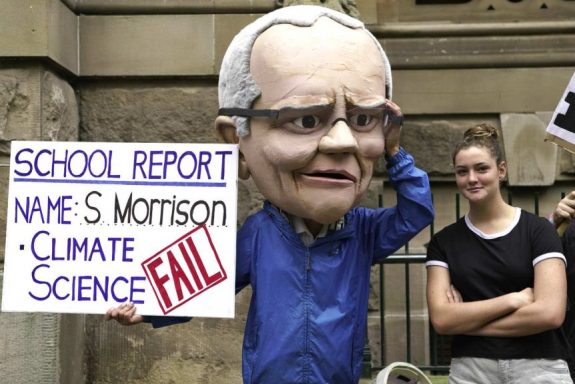










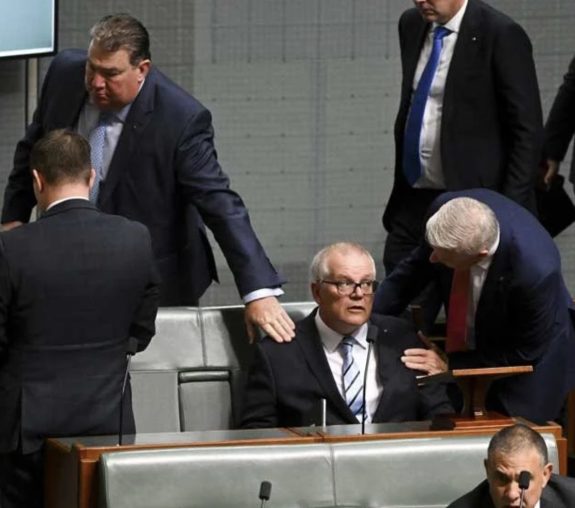



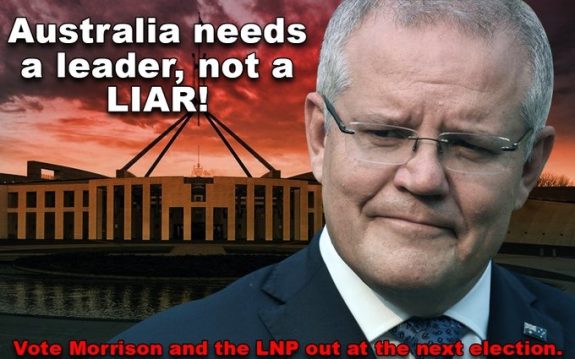
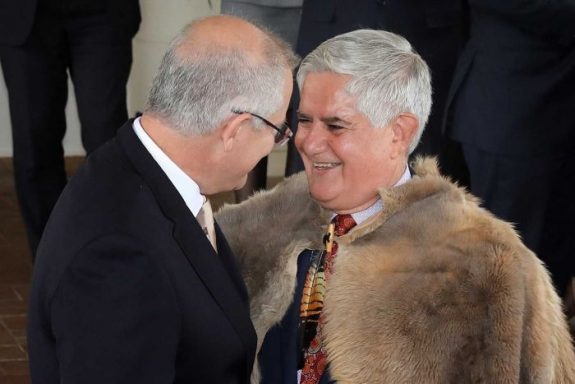
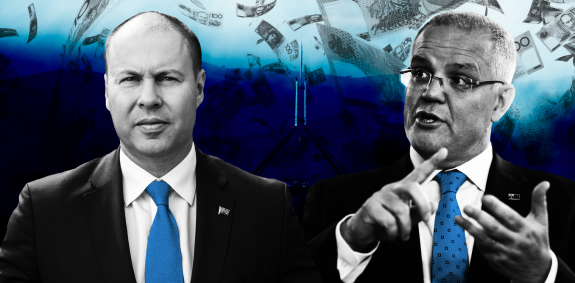







 Denis Bright is a member of the Media, Entertainment and Arts Alliance (MEAA). Denis has qualifications in journalism, public policy and international relations. He is committed to citizens’ journalism by promoting discussion of topical issues from a critical structuralist perspective. Readers are encouraged to continue the discussions in this current series of Trending Issues for Australians in this election year.
Denis Bright is a member of the Media, Entertainment and Arts Alliance (MEAA). Denis has qualifications in journalism, public policy and international relations. He is committed to citizens’ journalism by promoting discussion of topical issues from a critical structuralist perspective. Readers are encouraged to continue the discussions in this current series of Trending Issues for Australians in this election year.


